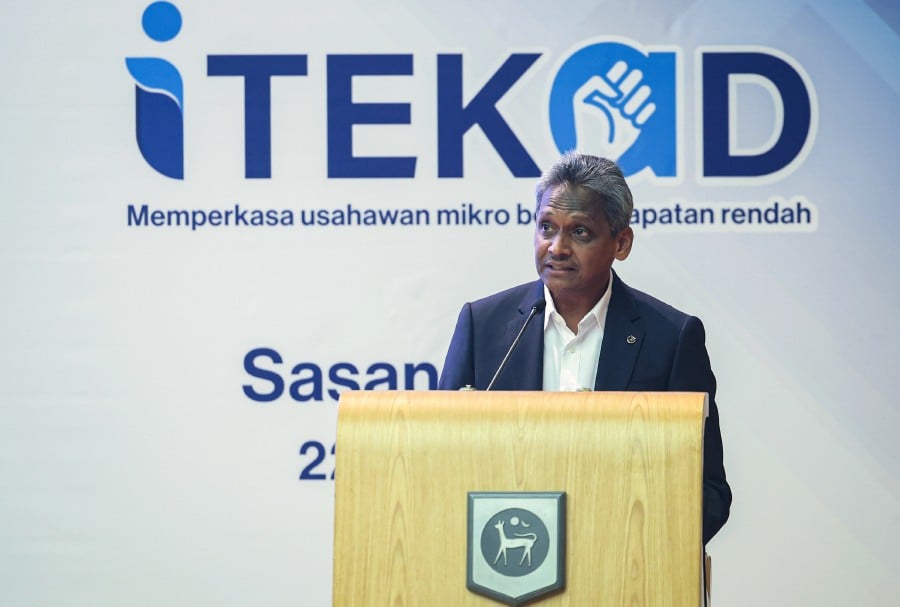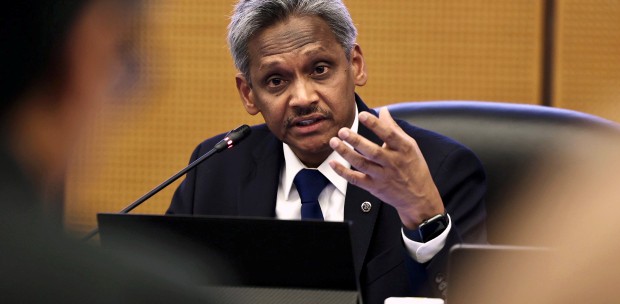KUALA LUMPUR: More than RM40 million has been channelled under i-Tekad social finance fund since 2020, benefitting over 3,000 micro entrepreneurs as of May this year.
Bank Negara Malaysia governor Datuk Shaik Abdul Rasheed Abdul said the programme has assisted the participants to pay for and embrace technology in their operations.
"To date, more than 40 per cent of i-Tekad participants have successfully generated income of more than RM4,000 per month. About 70 per cent are able to hire at least one employee and more than 70 per cent are able to save up to RM4,000 on a monthly basis.
"More than 90 per cent have operated their business and online marketing including implementing e-payment as part of their business transactions," he said.
He noted that Bank Negara is evaluating new applications that will benefit more participants.
Abdul Rasheed said i-Tekad is an initiative under Bank Negara to tackle the challenges faced by micro entrepreneurs from the low income group (B40).
"The effort is in line with the demand of micro financing that has increased two fold compared to before the Covid-19 pandemic," he said in his keynote speech at Majlis Jalinan Kerjasama i-Tekad here yesterday.
The programme is also aligned to the strategic blueprint of the Financial Sector Blueprint 2022-2026 in elevating the financial well-being of households and businesses.
He said the funding for the initiative consists of blended finance, a combination of philanthropic and commercial funds which translates into structured training, seed capital and microfinancing.
The programme involves 11 financial institutions and more than 50 implementation partners.
"The Malaysian economy is currently at an intersection, and economic and financial policies that are implemented today will determine the trajectory of the country's development in the future.
"With the wealth gap widening, it has to be handled and balanced with equality to maintain social integrity," he said.
He pointed out that the financial sector is poised to serve both those who are wealthy and also those who are in need of financial assistance by providing capital and credit as well as facilitating various financial transactions.





